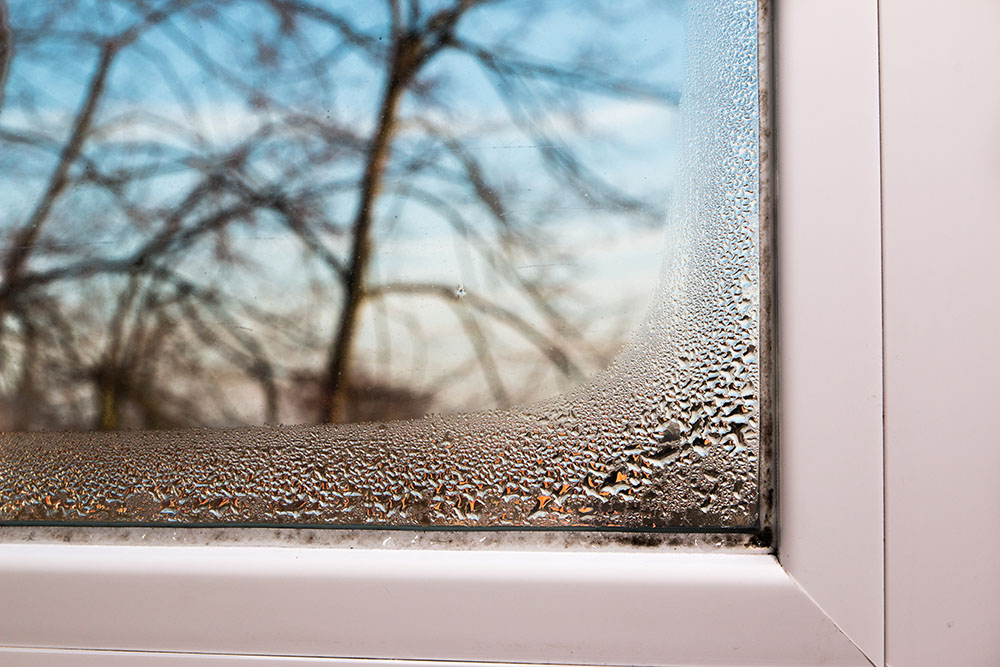Can Mould Grow In Winter Or Cold Weather?

CONTENTS
- The misconception of mould as a warm weather phenomenon
- Factors contributing to winter mould growth
- The health risks associated with winter mould
- Identifying signs of winter mould growth
- Preventive measures against winter mould growth
- Dealing with existing winter mould issues
- Year-round vigilance against mould growth
- Frequently asked questions
- Get in touch
Mould can grow in the warm seasons, but it is most prevalent in the winter. Whilst warmth is a vital factor for mould, this does not mean it is limited to growth throughout the summer. Warm homes in the winter are the best breeding grounds for mould, supporting their spread and keeping them alive.
At ICE Cleaning, we offer mould removal services to help identify mould, and its root cause, eliminating it at the source. Our expert solutions utilise leading technology in the UK, ensuring the mould cannot return after we have left your property.
Read on to learn more about what allows mould to grow in the winter and how it can affect health is crucial. Spotting early signs and knowing preventive measures will ensure your home remains safe year-round.
The misconception of mould as a warm weather phenomenon
It is a common belief that mould is strictly a summer problem. However, mould is not just known to grow in the summer months. Mould can and does flourish in winter, too.
Many may assume cold weather ends the warm, damp conditions mould loves. But, factors like increased indoor humidity and poor ventilation help mould thrive during colder months.
This unexpected growth uses our warm homes as breeding grounds during winter, using dead insects and skin cells as a food source.
Factors contributing to winter mould growth
Mould seeks warmth just like we do. Indoor heating creates warm pockets perfect for mould growth, and poor ventilation also helps trap moisture and warm air inside.
Cold exterior walls can cause condensation indoors when they meet the heated interior air. This dampness is an invitation for mould spores. The biggest factor, however, might be your home's insulation or lack thereof.
A poorly insulated house allows cold air that causes condensation on internal surfaces. To avoid this growth during the colder months, ensure your home has proper insulation and adequate ventilation to release excess moisture.
The health risks associated with winter mould
The mould issues go beyond its unsightly appearance - it can bring about genuine health hazards. Studies show respiratory issues are one concern for those living in homes with mould.
Mould spores can trigger allergies, causing sneezing, runny nose and red eyes. Those with asthma may also experience more frequent attacks when exposed to mould.
Fungi such as Aspergillus, often found in damp buildings during colder months, can lead to serious lung infections if inhaled. Research is still ongoing about the chronic effects that mould triggers, but it is known to cause potentially lifelong illnesses.
Identifying signs of winter mould growth
The presence of mould during winter is often overlooked. Realising the indications can assist you in preventing this issue before it becomes a major problem. Mould can first appear as discolouration on your walls or ceiling.
It may be black, green, yellow or brown spots with an unusual fuzzy appearance. These persistent damp and mouldy conditions can cause health problems.
A musty odour may be present, indicating the presence of mould, which could be unseen. If you notice any of these signs in your home during winter months, then you must take immediate action for mould remediation.
Preventive measures against winter mould growth
As winter sets in, it is essential to take steps that can keep mould at bay. One key measure is proper ventilation; this helps reduce condensation - a major cause of mould growth.
Maintaining a steady indoor temperature also plays an important role. Sudden changes can lead to condensation on windows and mirrors, creating ideal conditions for mould spores to grow.
Besides these measures, regularly checking potential hotspots like window sills and corners of walls aids in early detection and prevention of mould infestation. You should also avoid drying clothes indoors during winter as this increases humidity levels within the house, encouraging mould growth.
Dealing with existing winter mould issues
Mould issues can be daunting, but it is possible to fix this issue yourself, although professional help from a mould cleaning company is often more effective.
To fully eliminate mould, a lab test might need to be done for accurate identification and the best treatment options, which a professional cleaning company can conduct on your behalf.
If it is surface mould, regular household cleaning products may eliminate it. But, you must remember to keep windows open for ventilation during cleaning for health and safety and to wear rubber gloves.
Persistent or widespread mould problems will require a professional touch due to potential health risks and the need for specialised equipment.
Year-round vigilance against mould growth
To prevent mould year-round, you must take more action in your daily life and think more about your daily rituals. A great starting point is maintaining proper ventilation at home. Ensure your rooms are well-aired, especially those with high humidity, like bathrooms or kitchens.
Try to keep indoor moisture levels under control. Investing in a good dehumidifier or a moisture catcher in particularly vulnerable rooms can be very helpful.
You should always seek out expert assistance if necessary. Specialist cleaning companies can remediate existing mould issues, whilst providing advice on preventing future occurrences.
Frequently asked questions
How do you stop mould in winter?
Combat winter mould by keeping your home well-ventilated, drying out damp areas quickly, and using dehumidifiers. Also, consider insulating cold surfaces to reduce condensation.
How do you treat mould in the winter?
If you have spotted mould in your home, you must contact a mould removal company immediately. You can slow the spread by keeping your home well-ventilated and clean.
Why does my house get mould in the winter?
Your house gets mouldy in the winter due to increased indoor humidity from heating systems combined with poor ventilation and cooler external wall temperatures causing condensation.
Is mould bad in the winter?
Mould is harmful any time of year. In winter it can exacerbate respiratory issues because we spend more time indoors where spore concentrations are higher.
Get in touch
If you think your home may be at risk of mould growth this winter, you can rely on our mould remediation services at ICE Cleaning. We offer damp surveys and expert guidance on how you can prevent mould year-round. As part of our solutions, we can eliminate mould at the source and prevent its return.
To learn more about what we offer, you can get in touch with us at 0208 066 0360 or enquiries@icecleaning.co.uk where we can provide a no-obligation quote and free site survey. We operate nationwide, 24/7, 365 days a year, protecting your property from mould invasions.

Speak with me today,
I’m here to help
By asking you a few questions either via phone or email I can immediately provide a realistic estimation of the cost.
You’re in good company. We’ve cleaned for the following commercial clients… View all

Why choose us?
- Cater to a wide variety of cleaning situations
- Nationwide coverage, available 24/7
- Cater to commercial and domestic clients
- Free survey provided prior to quotation
- Emergency response team
- Offer a bespoke service designed to suit all your needs
- All technicians hold professional health and safety qualifications, including BICSc, IOSH, Dewpoint Professional & Safe Contractor
We’re fully accredited
We place best practise, professional expertise and health and safety at the core of our business. We’re fully compliant with all legal obligations. You can view a list of our accreditations below, or visit our Health & Safety page for more information.











-RGB-small.1707319151.jpg)




















